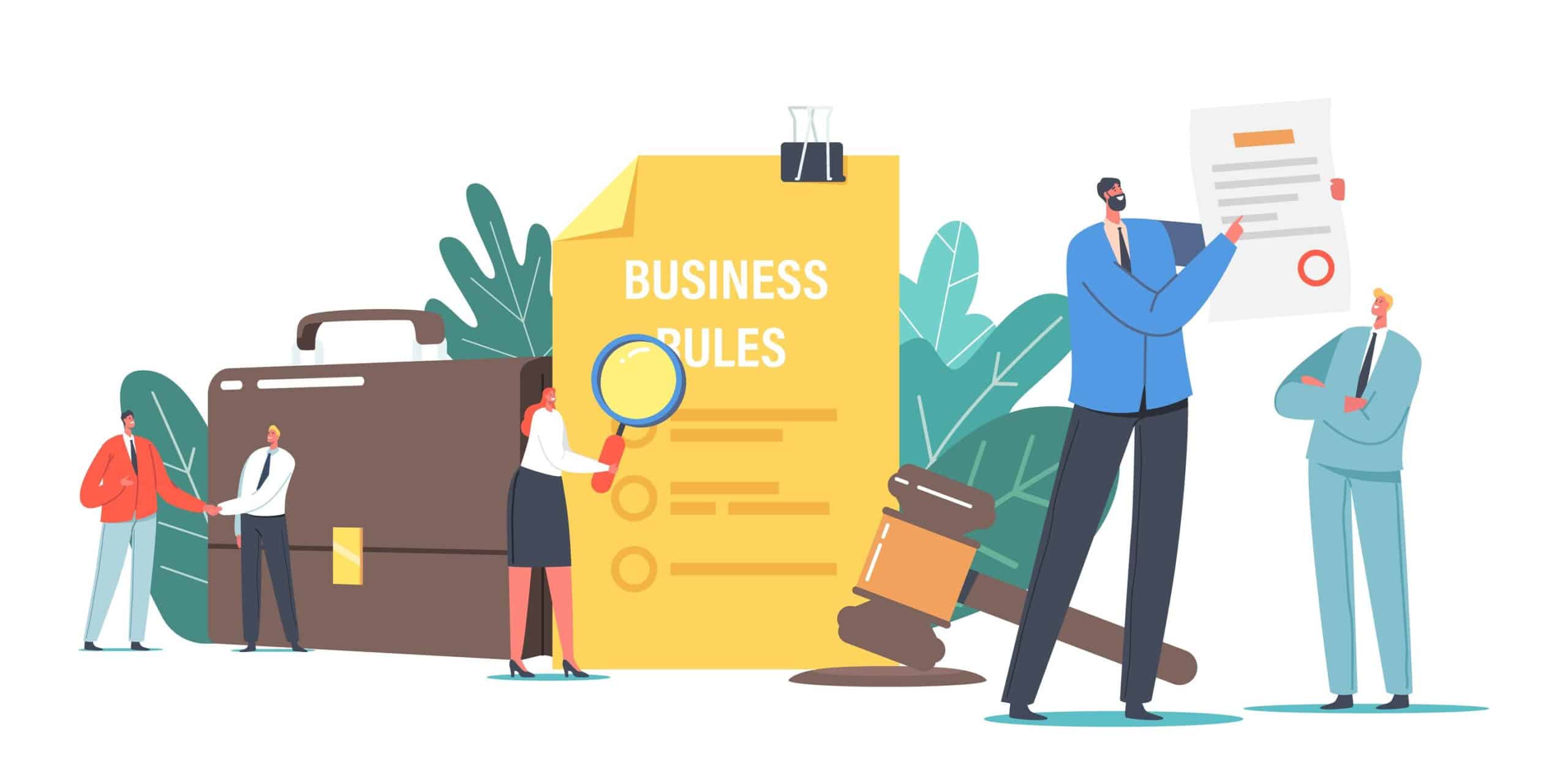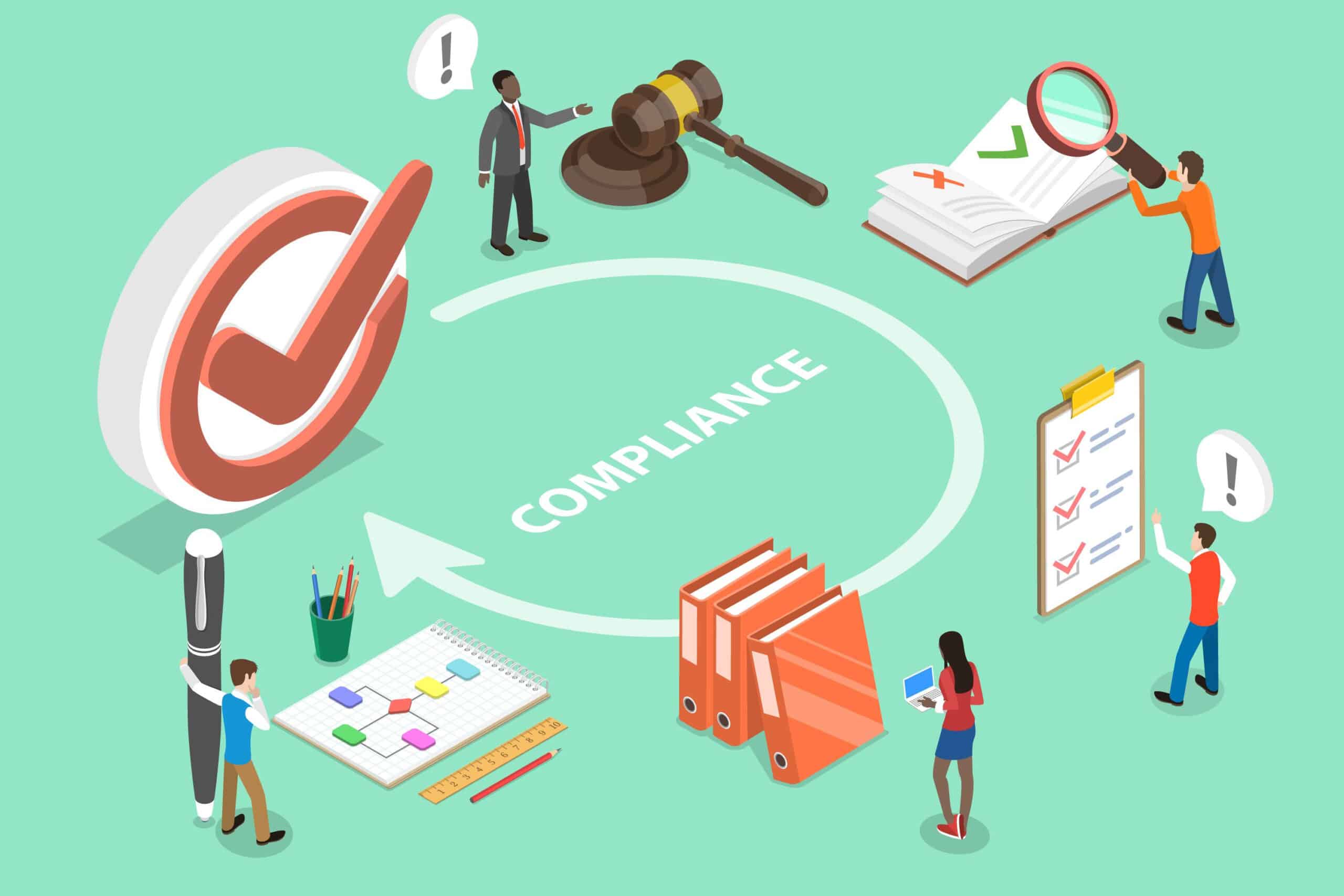What is FinCEN and What are BOI Reports?
If you run a small business, you’ve probably never heard of the Financial Crimes Enforcement Network, or “FinCEN”. However, starting in 2024, over 30 million businesses in the U.S. will need to get familiar with this government agency.
With the Corporate Transparency Act going into effect, businesses of all sizes are preparing for new federal compliance requirements. Starting January 1, 2024, LLCs and corporations in the U.S. will need to submit Beneficial Ownership Information reports (aka BOI reports) to FinCEN.
Here we explain what FinCEN is, and why it’s important for small businesses to know about Beneficial Ownership Information reporting.
What is the Purpose of FinCEN?
The Financial Crimes Enforcement Network (FinCEN) is a bureau of the United States Department of the Treasury. FinCEN’s core mission is to fight financial crimes, like money laundering and terrorism financing. FinCEN works closely with banks and other financial institutions to scrutinize financial transactions and prevent illegal activity.
FinCEN’s primary responsibilities include:
- Analyzing financial transaction reports to identify patterns and trends indicating money laundering.
- Sharing financial intelligence with law enforcement and regulatory agencies, including the FBI, IRS, Secret Service, and other local or state departments.
- Issuing regulations for financial institutions regarding filing transaction reports, implementing anti-money laundering programs and identifying terrorism financing.
- Managing financial sanctions programs imposed by the U.S. Department of Treasury and the Office of Foreign Asset Controls.
FinCEN receives over 2 million reports per year from banks and similar entities. The agency maintains this data to assist law enforcement with investigations.
What is a FinCEN Report?
Business owners need to submit Beneficial Ownership Information (BOI) reports before the specified deadlines in order to comply with the Corporate Transparency Act. FinCEN requires business entities to disclose personal information about the beneficial owners, control parties, and company applicants involved in the company.
What Gets Reported to FinCEN?

- Full name,
- Date of birth,
- Residential address, and
- A picture of a valid ID document.
Valid ID documents include driver’s licenses, passports, and government issued IDs that are not expired.
BOI reports also require information about the reporting company itself, including:
- The company’s full legal name,
- Business entity type,
- Date of formation,
- Principal business address,
- A Federal tax ID number (EIN, ITIN, or SSN), and
- Any all trade names the company uses.
Trade names include publicly filed DBAs, as well as any unofficial trade names that company uses. Business owners should also consider reporting any online domain names that the company uses for business purposes.
Reporting companies need to keep their BOI reports up to date in order to remain compliant with the CTA. Business owners will need to submit a BOI Updated report to FinCEN if any of the information included in the original report changes. For example, if a beneficial owner changes their residential address, or a new CEO is appointed. Reporting companies need to file BOI Updated reports within 30 days of any change.
Who is Included in a FinCEN Report?
FinCEN requires business entities to disclose personal information about three types of individuals involved in the company:
- beneficial owners,
- substantial control control parties, and
- company applicants
Let’s break down who needs to be included in a Beneficial Ownership Information report:
Who are Beneficial Owners in a FinCEN Report?
FinCEN considers beneficial owners to be individuals who hold at least 25% of the ownership interest in a reporting company. The most common examples of beneficial owners are Members in an LLC, and stockholders in a corporation. However, there are other ways that an individual can be considered a beneficial owner without being a direct owner in a reporting company.
For example, a person may have an interest just in the profits of an LLC, or some form of convertible stock options in a corporation. If these individuals meet FinCEN’s threshold of 25% ownership, they will need to be reported as beneficial owners in the company’s BOI report.
Who are Control Parties in a FinCEN Report?
FinCEN requires reporting companies to disclose any and all individuals who exercise “substantial control” over important company decisions. These individuals are known as “control parties”.
Control parties include anyone who has authority to act on behalf of the company, to:
- Enter or terminate contracts,
- Appoint or remove senior officers and board members,
- Sign contracts, and
- Open business bank accounts.
Control parties can also have significant influence over important business decisions, such as:
- Selling or transferring company assets,
- Reorganization of the company,
- Major expenditures and investments,
- Amendments to corporate documents, like incorporation or bylaws,
- And other strategic decisions.
In general, “control parties” is a catch-all term that includes any person with significant responsibilities within a reporting company.
Who are Company Applicants in a FinCEN Report?
New companies formed after January 1, 2024 need to include their company applicants in their BOI report. Companies already in existence before 2024 do not need to provide their company applicants.
Company applicants are the individuals who were most involved in the process of forming the company. Every reporting company has two company applicants that need to be included in the BOI report:
Company Applicant #1: Requests Company Formation
The first company applicant is the individual who is most responsible for requesting that the LLC or corporation be formed.
Company Applicant #2: Files the Company Formation Documents
The person who directly files the company formation documents with the Secretary of State’s office also needs to be reported as a company applicant.
If an incorporation service assisted with forming the company, the second company applicant will be the employee who directly submitted the formation documents to the state.
Why Does FinCEN Impact Small Businesses?
Starting in 2024, businesses of all sizes will need to become familiar with FinCEN. This is because the recently passed Corporate Transparency Act (CTA) mandated FinCEN to create a registry of beneficial owners and important decision makers associated with U.S. companies.
FinCEN requires legally formed business entities operating in the United States to complete Beneficial Ownership Information (BOI) reports. These requirements impact nearly all limited liability companies (LLCs) and corporations.
Business owners need to file complete and accurate BOI reports for their companies before the deadlines. Failing to meet the reporting requirements can result in serious penalties, including up to $500 per day in civil fines, and even up two years in jail.
Some business owners and solo entrepreneurs may think that FinCEN’s BOI reporting requirements don’t apply to them. However, the Corporate Transparency Act directly targets small businesses. Large operating companies are able to get an exemption from FinCEN if they hire more than 20 full-time employees, a physical office in the U.S., and over $5 million in revenue.
What Does FinCEN Have to Do With Beneficial Ownership Information?
FinCEN stores Beneficial Ownership Information in a secure government database. Company BOI reports are not openly available to the public. The BOI database can only be accessed by law enforcement agencies and banks.
FinCEN grants access to Beneficial Ownership Information to various Federal, State and local agencies to assist with activities concerning national security, intelligence and law enforcement.
Banks and other financial institutions can only obtain Beneficial Ownership Information under certain circumstances. A bank needs to get consent form a reporting company itself before it can gain access to the company’s BOI report.
Should I Get a FinCEN Identifier Number?
FinCEN Identifiers, or “FinCEN IDs”, can be helpful for individuals who own multiple companies, or anticipate needing to update their Beneficial Ownership Information in the future. A FinCEN ID is a unique identifying number assigned by FinCEN to both individuals and reporting companies.
Obtaining a FinCEN ID requires submitting an application to FinCEN that includes all of the necessary information for a BOI report. Instead of providing all of their information multiple times, an individual can just input their FinCEN ID number instead.
Reporting companies can use FinCEN IDs to help speed up the process of updating their BOI reports. An individual can input their FinCEN ID and simply make any necessary changes to their information instead of making the company resubmit their information multiple times.





